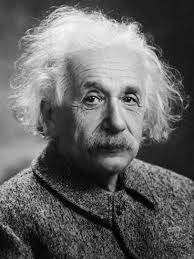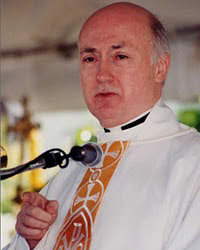March 19, 2017
by Fr. George W. Rutler
In an age of moral confusion,
there are those who would
suggest that the word “not” has been interpolated in several of the
Commandments.
It is easy to make words mean what one wants them to mean: in
fiction, Humpty Dumpty did that in Wonderland and in fact, the Anti-Christ did
that in the Wilderness.
Satan is clever at quoting words out of context to make
them mean what they do not mean. After forty days, Christ mocked that deceit.
“You shall not tempt the Lord your God” (Deuteronomy 6:16; Matthew 4:7).
Jesus is the Living Word because he explains
the true meaning of words. He abhors hypocrisy because it twists words, and
will actually crucify the Word himself: “But now you seek to kill me, a man who
has told you the truth” (John 8:40).
Recently, a befuddled
theologian tried to justify his misrepresentation of doctrine by saying:
“Theology is not Mathematics. 2 + 2 in Theology can make 5. Because it has to
do with God and the real life of people.”
Only in Wonderland does reality
contradict the real life of people, and only in the Wilderness does the Tempter
try to make God contradict himself.
The Church is clear on that:
"Though
faith is above reason,
there can never be any real discrepancy
between faith
and reason.
Since the same God who reveals mysteries
and infuses faith has
bestowed the light of reason
on the human mind,
God cannot deny himself,
nor
can truth ever contradict truth”
(Catechism of the Catholic Church, 159).
Denial of reality
is the vice of superstition, which comes in various forms, abusing the virtue
of religion. A religious enthusiast who says God can twist reality is as
superstitious as the atheist who says there is no God at all, or the positivist
who says that man is God, or the pantheist whose god is the world.
 |
| Professor Einstein |
One Christmas in
Princeton, carolers sang “Silent Night” outside Einstein’s house on Mercer
Street. He did not sing their words, but he accompanied them on his violin.
That was more honest than any aberrant theologian who crucifies the Living Word
by wrongly conjugating him.
Father Rutler’s book, The Stories of Hymns – The History
Behind 100 of Christianity’s Greatest Hymns, is available through Sophia
Institute Press (Paperback or eBook) and Amazon (Paperback or Kindle).
Make a Donation, of any amount, to the Church of St.
Michael.
Our website is www.StMichaelNYC.com

No comments:
Post a Comment